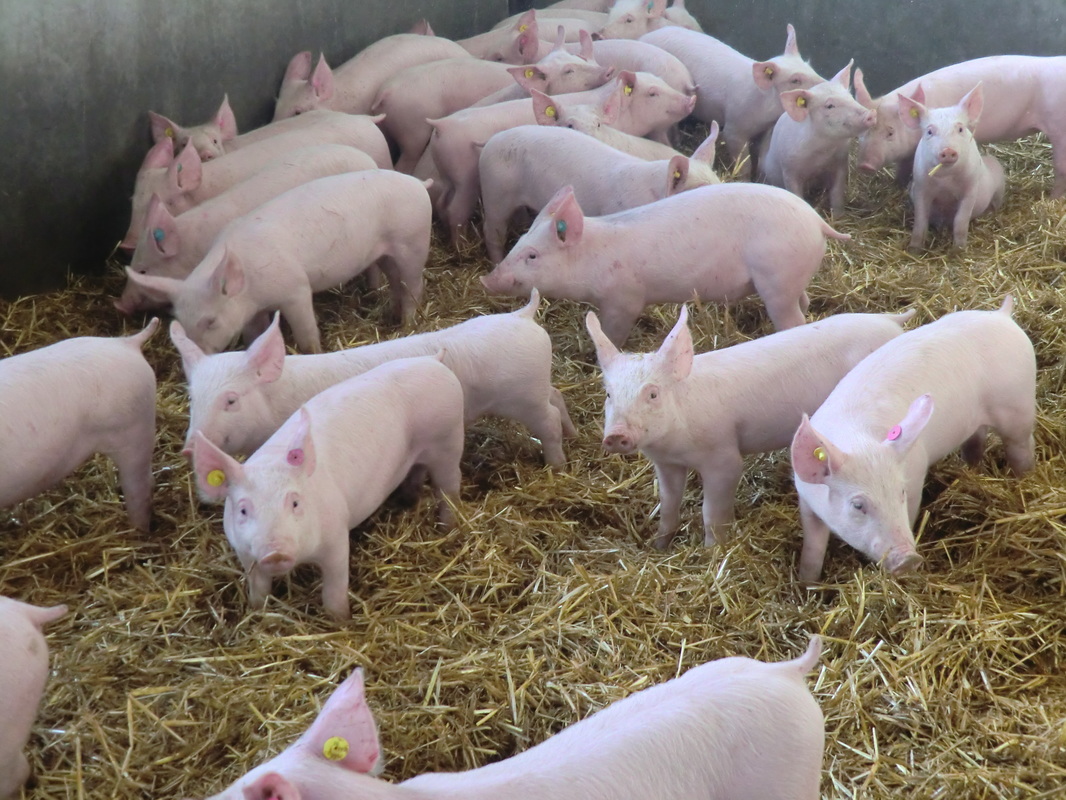SAPHIR
From 2015-03-01 to 2019-03-01; closed project
The European Horizon 2020 research project SAPHIR aims to develop innovative, safe, affordable and effective vaccine strategies effective against endemic pathogens responsible for high economic losses in livestock. By generating vaccine strategies for these pathogens in pigs, poultry and ruminants, SAPHIR will aid in strengthening the profitability of food animal systems, improve animal welfare and reduce xenobiotic usage in farming with a ‘One Health’ perspective.
|
Objectives:
Scientific objectives: To unravel mechanisms of immune protection To induce rapid and long-lasting immunity To develop save vaccines To predict epidemiological consequences of vaccination Technical objectives: To generate models and assays for the development of vaccines To investigate a variety of vaccines and delivery systems To bring promising vaccines to demonstration Socio-economic objectives: To explore the economic impact of the SAPHIR diseases To predict the socio-economic benefits of using the designated vaccination strategies. |
Impact:
By generation of innovative vaccine strategies SAPHIR will minimize public health risks by preventing and controlling animal diseases and reducing the use of antibiotics in the ‘one health’ perspective. A decrease in animal diseases and anti-microbial use will result in an improved animal welfare and therefore will increase productivity, efficiency and profitability of animal agriculture.
By identification of markers that can be used for selective breeding, robust animals that are better adapted to environmental changes and exhibit an optimal response to vaccination can be selected. The SAPHIR project will formulate new efficiency traits for these breeding programmes.
Concerns about food safety and the use of GMO vaccines are high. Therefore, the SAPHIR project will contribute to improve the livestock producers’ acceptance and use of vaccines.
Knowledge and technology that arise from the SAPHIR project will be exploited in the following markets:
- Veterinary vaccine market
- Animal diagnostic company market
- Livestock breeding and selection market
- Animal protein sector
Results of the SAPHIR project will be disseminated to reach these stakeholders and to promote vaccine developments by companies.
Follow the progress of the SAPHIR project at the SAPHIR website or visit http://cordis.europa.eu/project/rcn/193183_en.html.
By generation of innovative vaccine strategies SAPHIR will minimize public health risks by preventing and controlling animal diseases and reducing the use of antibiotics in the ‘one health’ perspective. A decrease in animal diseases and anti-microbial use will result in an improved animal welfare and therefore will increase productivity, efficiency and profitability of animal agriculture.
By identification of markers that can be used for selective breeding, robust animals that are better adapted to environmental changes and exhibit an optimal response to vaccination can be selected. The SAPHIR project will formulate new efficiency traits for these breeding programmes.
Concerns about food safety and the use of GMO vaccines are high. Therefore, the SAPHIR project will contribute to improve the livestock producers’ acceptance and use of vaccines.
Knowledge and technology that arise from the SAPHIR project will be exploited in the following markets:
- Veterinary vaccine market
- Animal diagnostic company market
- Livestock breeding and selection market
- Animal protein sector
Results of the SAPHIR project will be disseminated to reach these stakeholders and to promote vaccine developments by companies.
Follow the progress of the SAPHIR project at the SAPHIR website or visit http://cordis.europa.eu/project/rcn/193183_en.html.
Partners:
- Institut National de la Recherche Agronomique
- Cardiff University
- Eidgenössisches Departement des Innern, Institut für Virologie und Immunologie
- European Forum of Farm Animal Breeders
- Immunología y Genética Aplicada S.A. Ingenasa
- INRA Transfer
- Parco Tecnologico Padano
- Shanghai Veterinary Research Institute
- SporeGen
- Stichting Dienst Landbouwkundig Onderzoek - Central Veterinary Institute
- Sveriges Lantbruksuniversitet
- Warsaw University of Life Sciences
- The Pirbright Institute
- The Royal Veterinary College – University of London
- Bern University
- Lausanne University
- Universiteit Gent
- University Court of the University of Edinburgh
- Vaccibody
- Virbac
- Xeolas Pharmaceuticals

